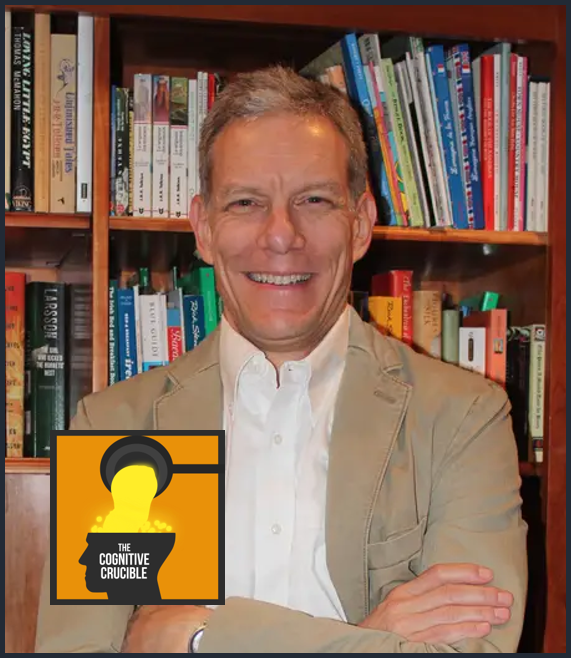
The Cognitive Crucible is a forum that presents different perspectives and emerging thought leadership related to the information environment. The opinions expressed by guests are their own, and do not necessarily reflect the views of or endorsement by the Information Professionals Association.
During this episode, Prof Matt Jackson of Stanford University discusses social learning, game theory, and an optimization methodology for minimizing the spread of disinformation.
Research Question:
Resources:
Link to full show notes and resources
Guest Bio:
Matthew O. Jackson is the William D. Eberle Professor of Economics at Stanford University and an external faculty member of the Santa Fe Institute. He was at Northwestern University and Caltech before joining Stanford, and received his BA from Princeton University in 1984 and PhD from Stanford in 1988. Jackson’s research interests include game theory, microeconomic theory, and the study of social and economic networks, on which he has published many articles and the books `The Human Network’ and `Social and Economic Networks’. He also teaches an online course on networks and co-teaches two others on game theory. Jackson is a Member of the National Academy of Sciences, a Fellow of the American Academy of Arts and Sciences, a Fellow of the Econometric Society, a Game Theory Society Fellow, and an Economic Theory Fellow, and his other honors include a Guggenheim Fellowship, the Social Choice and Welfare Prize, the von Neumann Award from Rajk Laszlo College, an honorary doctorate from Aix-Marseille University, the Jean-Jacques Laffont Prize from the Toulouse School of Economics, the B.E.Press Arrow Prize for Senior Economists, the BBVA Frontiers of Knowledge Award in Economics, Finance, and Management, and teaching awards. He has served on the editorial boards of Econometrica, Games and Economic Behavior, PNAS, the Review of Economic Design, and as the President of the Game Theory Society.
About: The Information Professionals Association (IPA) is a non-profit organization dedicated to exploring the role of information activities, such as influence and cognitive security, within the national security sector and helping to bridge the divide between operations and research. Its goal is to increase interdisciplinary collaboration between scholars and practitioners and policymakers with an interest in this domain.
For more information, please contact us at communications@information-professionals.org.
Or, connect directly with The Cognitive Crucible podcast host, John Bicknell, on LinkedIn.
Disclosure: As an Amazon Associate, 1) IPA earns from qualifying purchases, 2) IPA gets commissions for purchases made through links in this post.